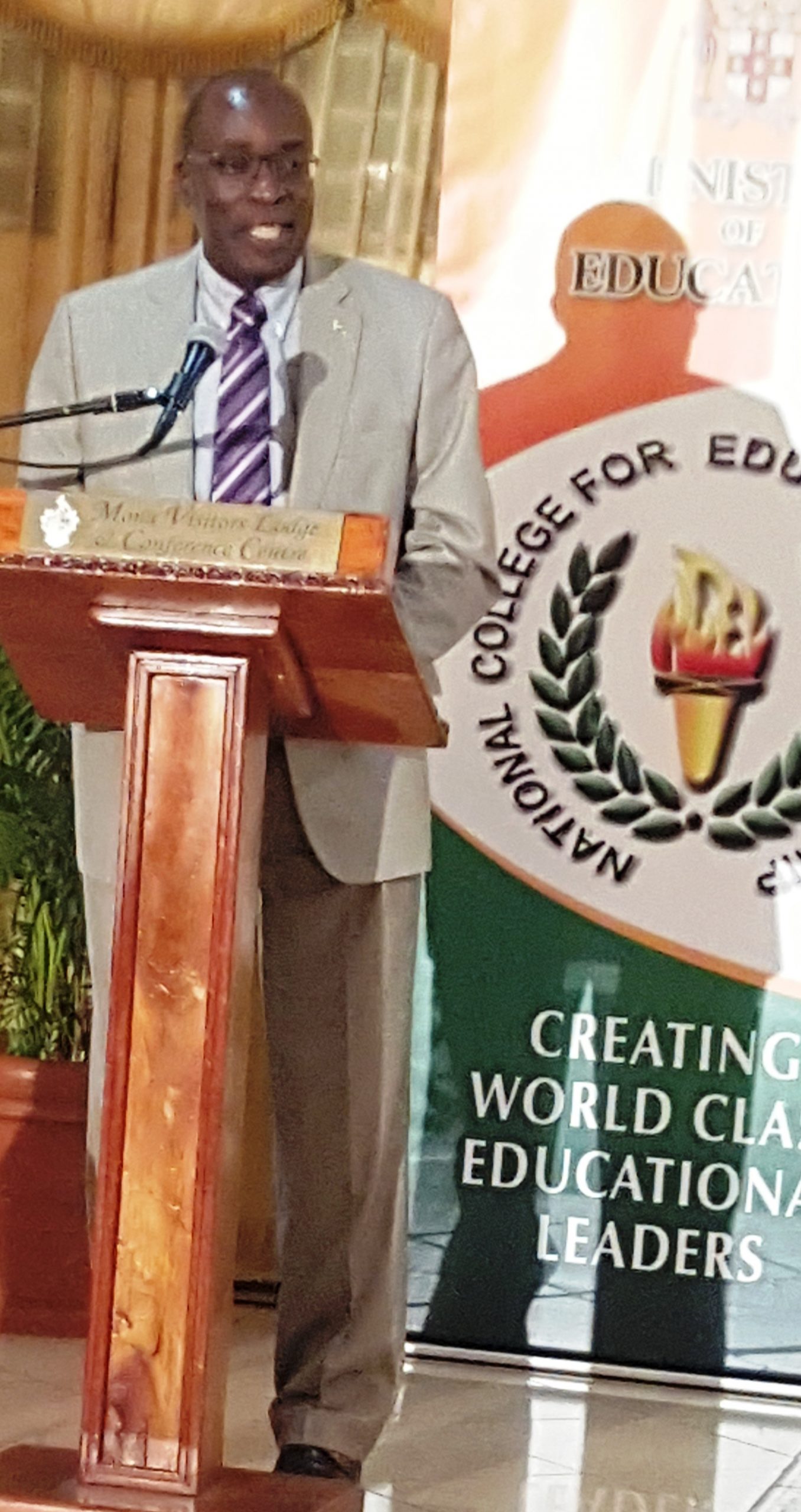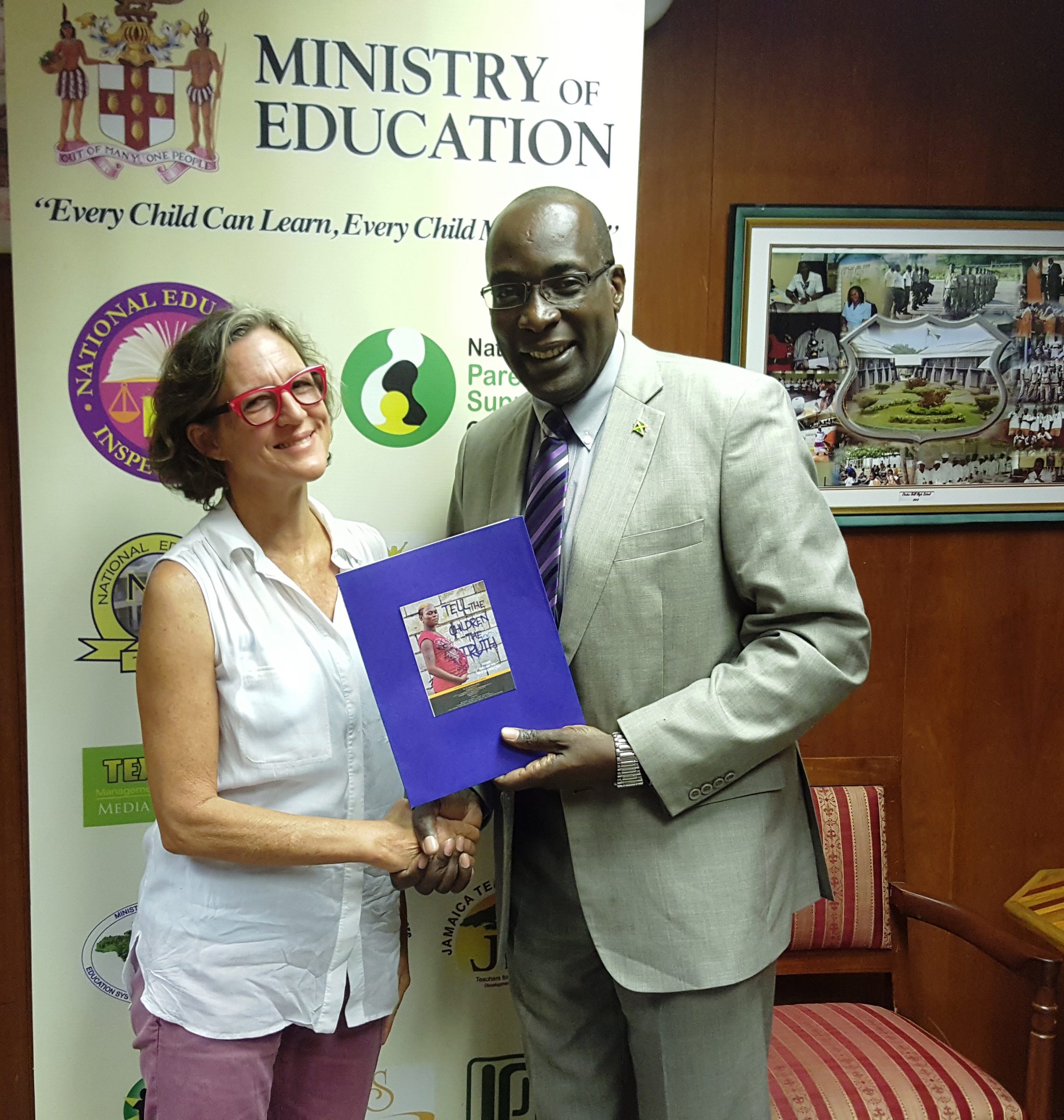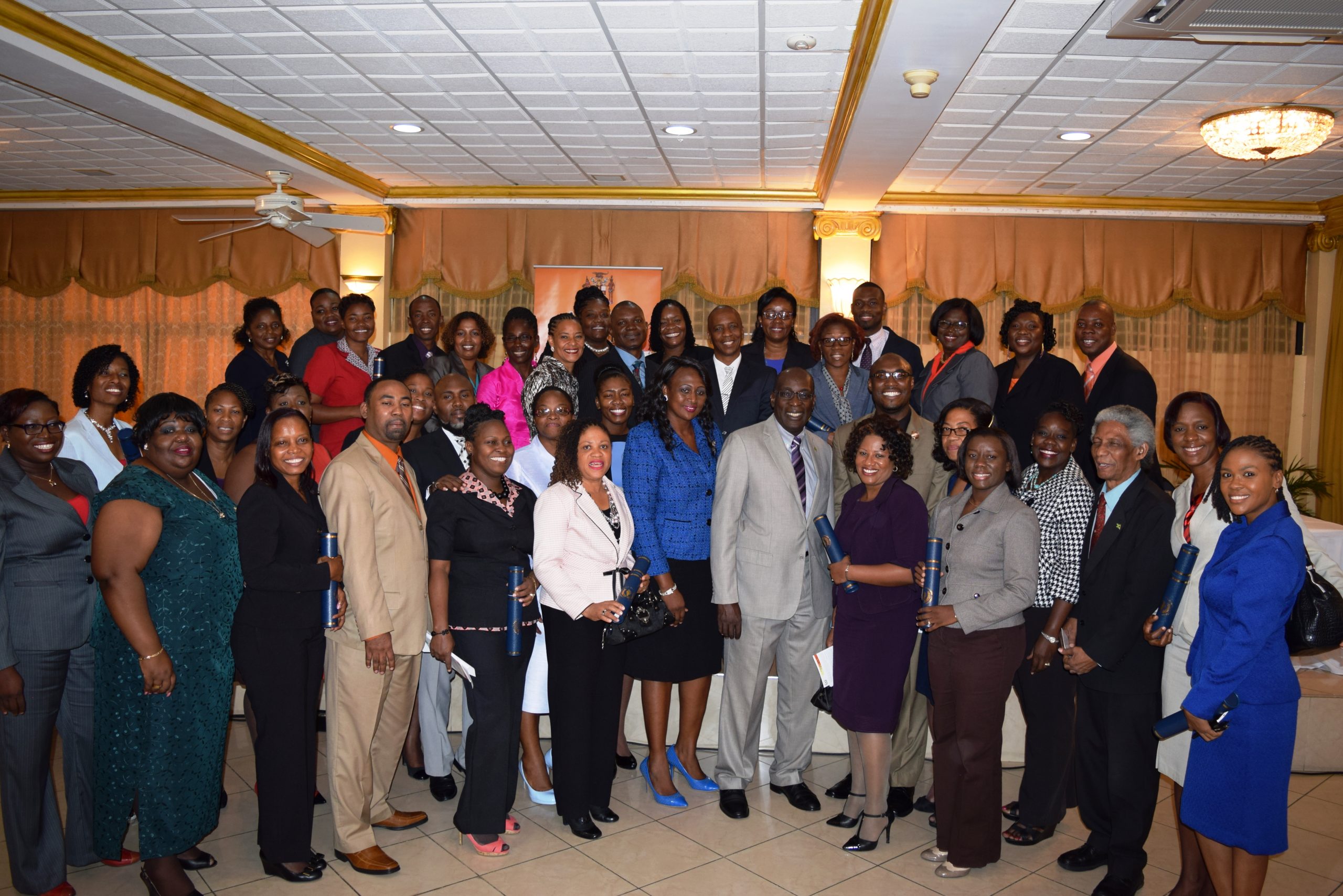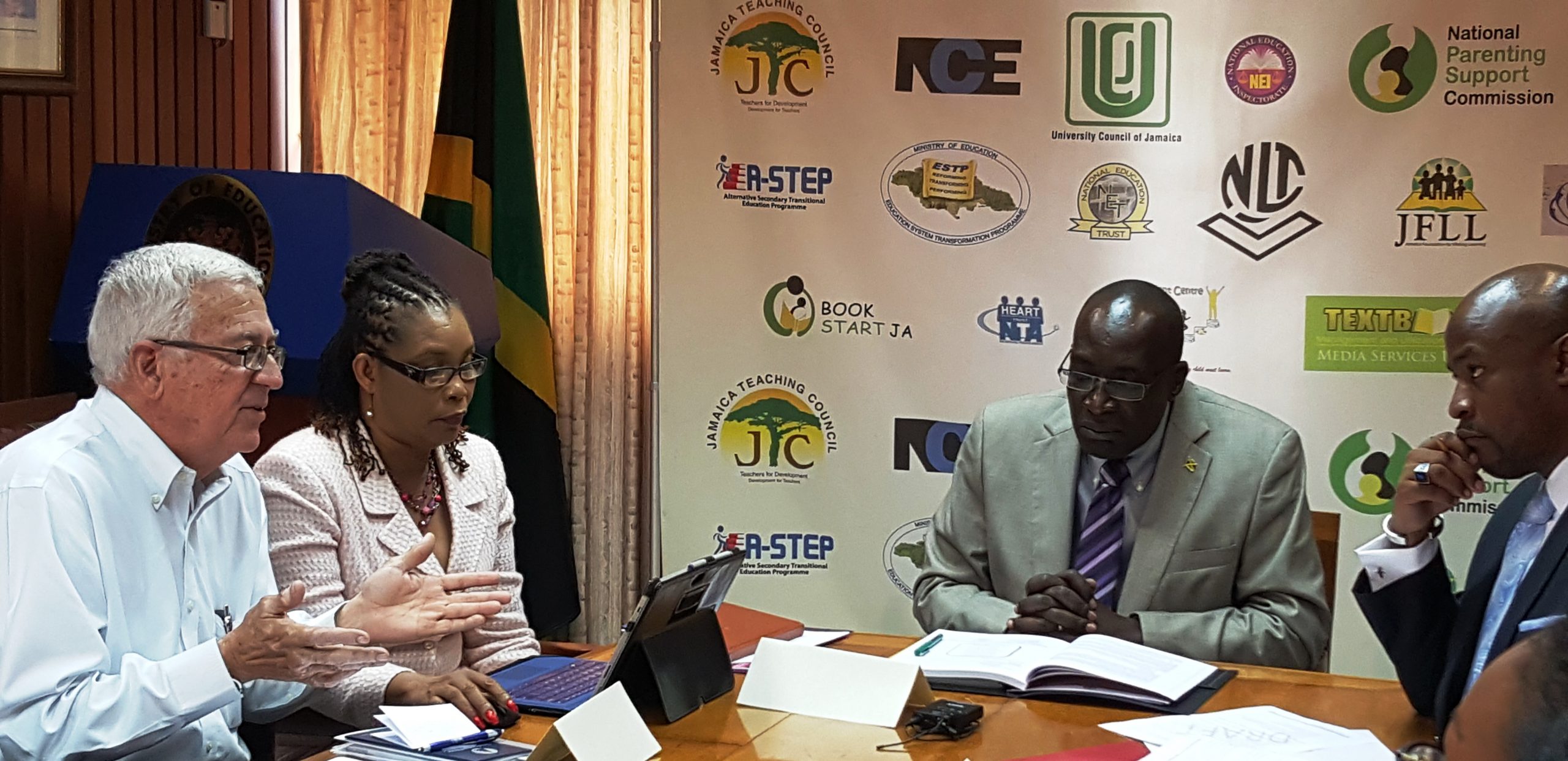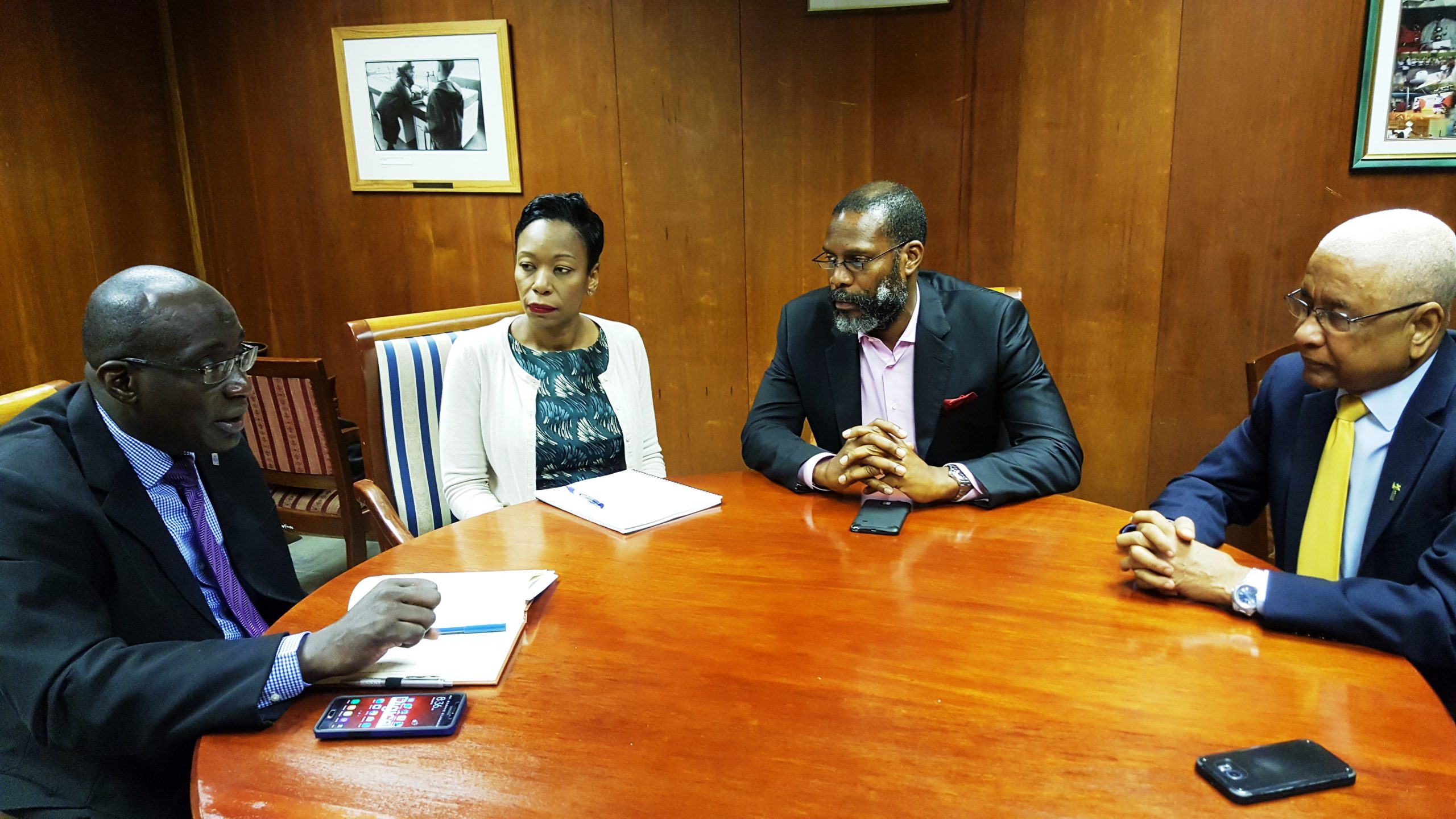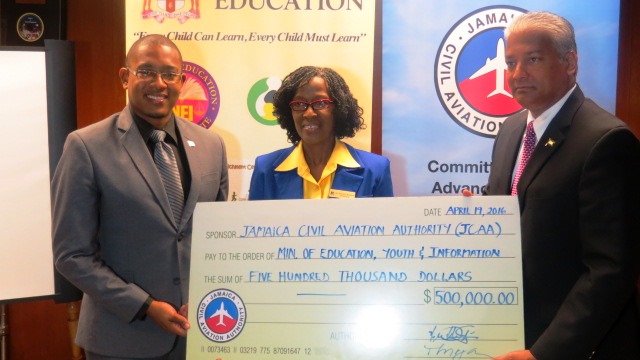Senator Ruel Reid, Minister of Education, Youth and Information has announced the removal of auxiliary fees in high schools effective at the start of the next academic year. He said this will be facilitated by increasing the Ministry’s subvention to schools for tuition from $11500 to $19000.
The Education Minister made the disclosure during his address to graduates of the Aspiring Principals Programme at Mona Visitor’s Lodge on Wednesday (April 20). The programme is delivered by the National College of Educational Leadership in collaboration with the University of the West Indies School of Education.
Minister Reid explained that the resultant $2 billion increase in expenditure will be funded across two budget periods and disbursed to schools in tranches. He disclosed that the Ministry was currently devising a funding formula to ensure that there is equity in the amount of subvention to each school towards tuition fees.
He noted that the Ministry will be consulting with principals and other stakeholders before the new subvention amount is implemented.
The funding formula aims to achieve several objectives:
1. Provide the highest level of available funding to schools that receive students with the lowest level of academic achievement on entry, and to schools where the majority of students are from the poorest socio-economic condition.
2. Through more equitable funding schools will be able to allocate the staffing and resources required to meet the needs of the students they serve.
3. The allocation of budget for a school for each academic year should reflect the student enrolment for that particular year and any changes to the school population. As the conditions/situation of students change the budget allocated for staffing in that school must change within an adequate time period.
4. However, schools will not be permitted to enrol more than the number of places permitted by the Ministry
5. Reflect the nature of the plant and site, the curriculum offer and the health and safety of students and staff.
The Ministry is seeking to allocate the resources where it is most needed to get optimum results.


